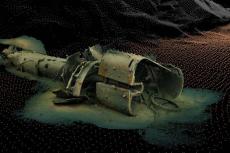Toxic chemicals in UK whales and dolphins: A growing concern
Persistent Organic Pollutants (POPs), once hailed as groundbreaking synthetic chemicals, have now been identified as a significant threat to marine wildlife, particularly apex predators like whales and dolphins.
Originally developed for use in pesticides, paints and fire-resistant materials, POPs are highly toxic and do not easily break down in nature. These chemicals have leached into the soil, air and waterways, eventually reaching the ocean. They are absorbed by plankton at the bottom of the food chain and increase in concentration through a process known as biomagnification. As a result, marine mammals, which are at the top of the food chain, accumulate high levels of these toxins.
Impact
The accumulation of POPs in marine mammals’ body fats can cause severe damage to their reproductive systems, immune system and hormonal cycles. Although the direct link between POPs and the death of marine mammals has not been conclusively established, these chemicals add to the myriad of threats these animals face, which include fishing bycatch, noise pollution and climate change.
The presence of high levels of toxic chemicals in UK whales and dolphins is a stark reminder of the long-term environmental impact of human activities.
The harmful effects of POPs were recognised in the 1970s, leading to regulatory measures. The Stockholm Convention, which came into force in 2004, bans or restricts the production and use of the most damaging compounds. However, the persistence of these chemicals means that their impact on marine life will continue for many years.
Findings
The United Kingdom’s Cetacean Strandings Investigation Programme has been investigating the deaths of marine mammals that become stranded on UK coasts. Toxicology samples collected over more than 30 years are providing insights into the ongoing impact of pollutants on these animals. The findings indicate that the levels of toxic chemicals in UK whales and dolphins are exceeding safe limits, posing a significant risk to their health and survival.
Fact file
"Persistent organic pollutants (POPs) are organic compounds that are resistant to degradation through chemical, biological, and photolytic processes. They are toxic chemicals that adversely affect human health and the environment around the world. Because they can be transported by wind and water, most POPs generated in one country can and do affect people and wildlife far from where they are used and released.
"The effect of POPs on human and environmental health was discussed, with intention to eliminate or severely restrict their production, by the international community at the Stockholm Convention on Persistent Organic Pollutants in 2001."
— Wikipedia














































